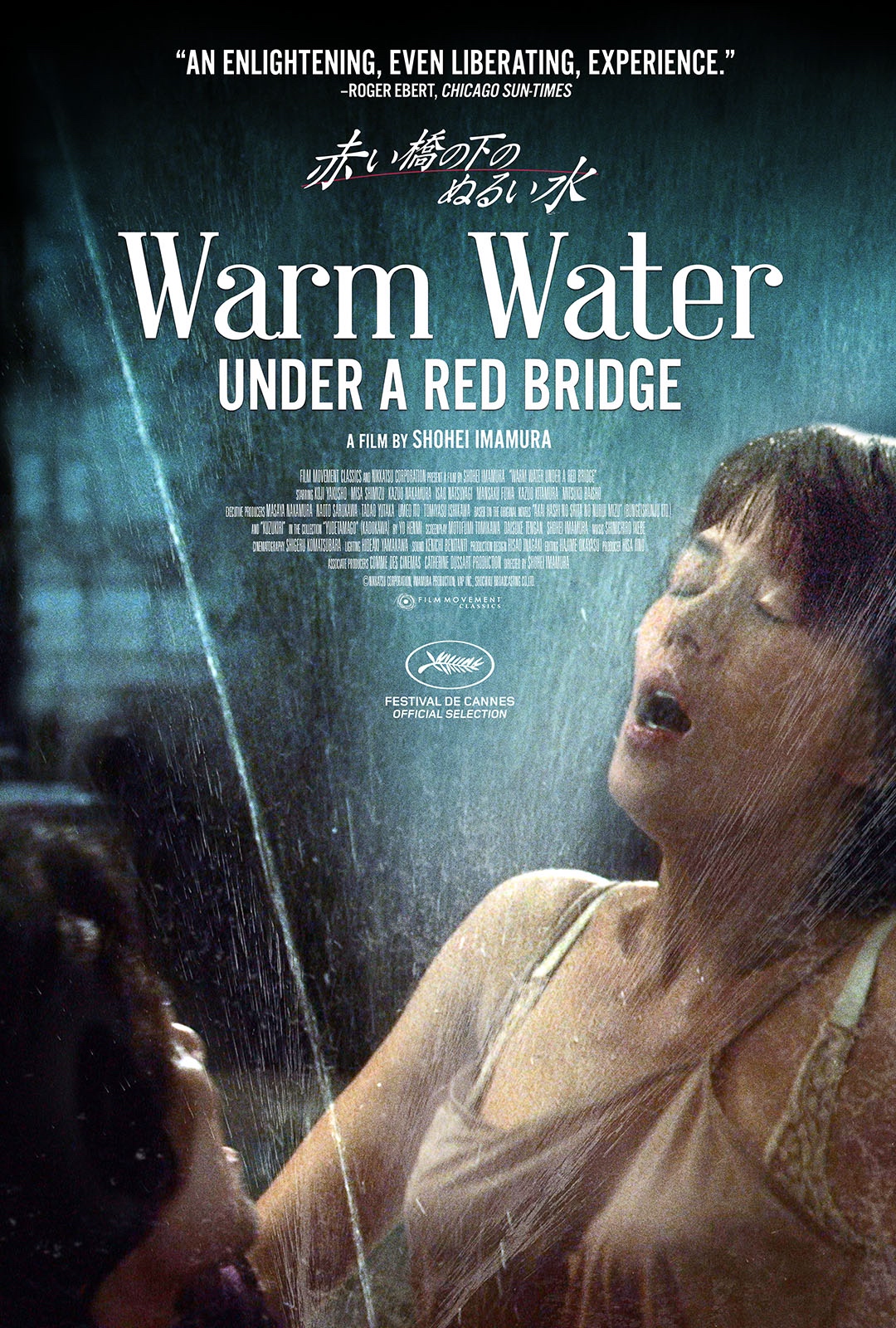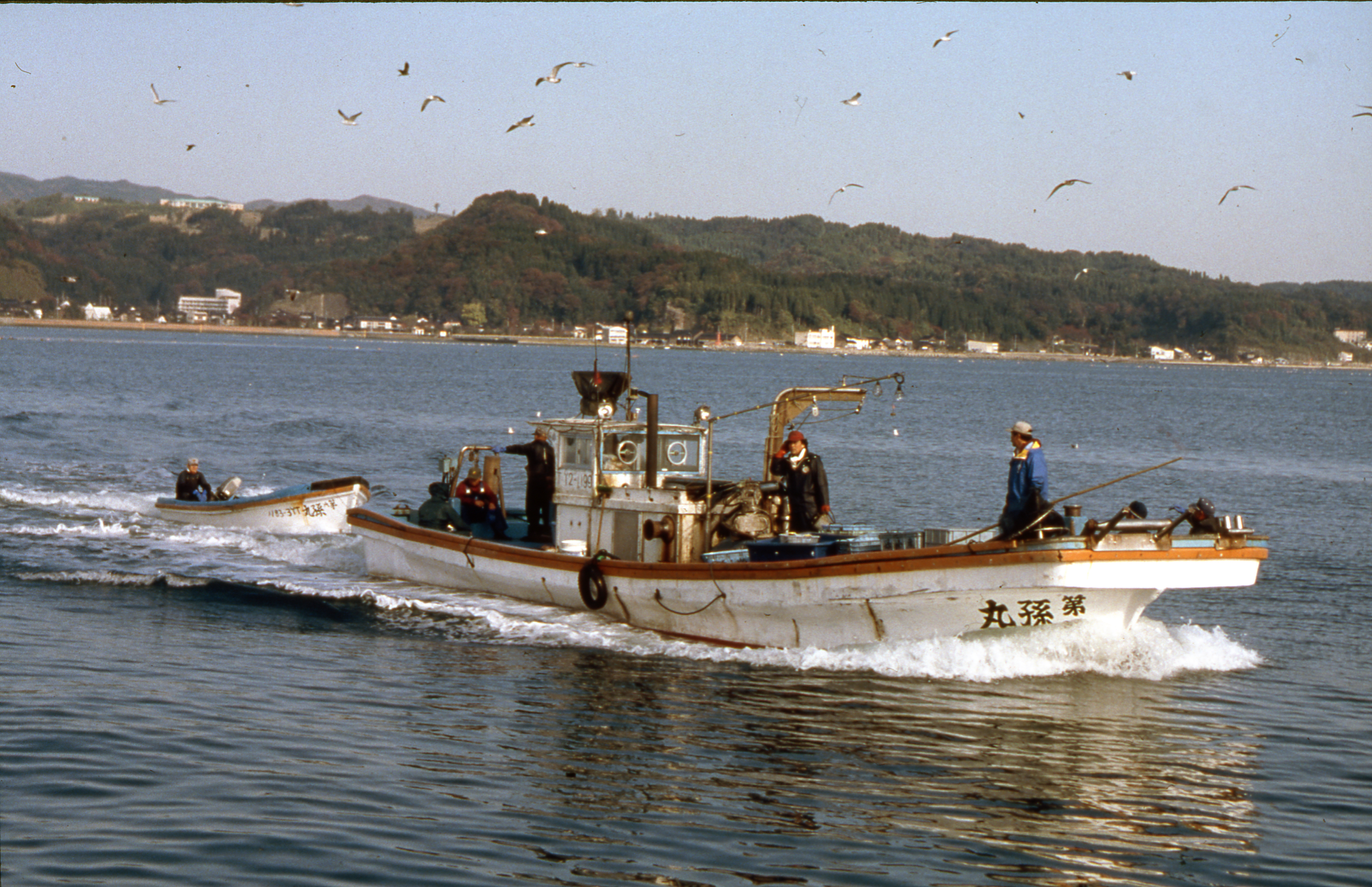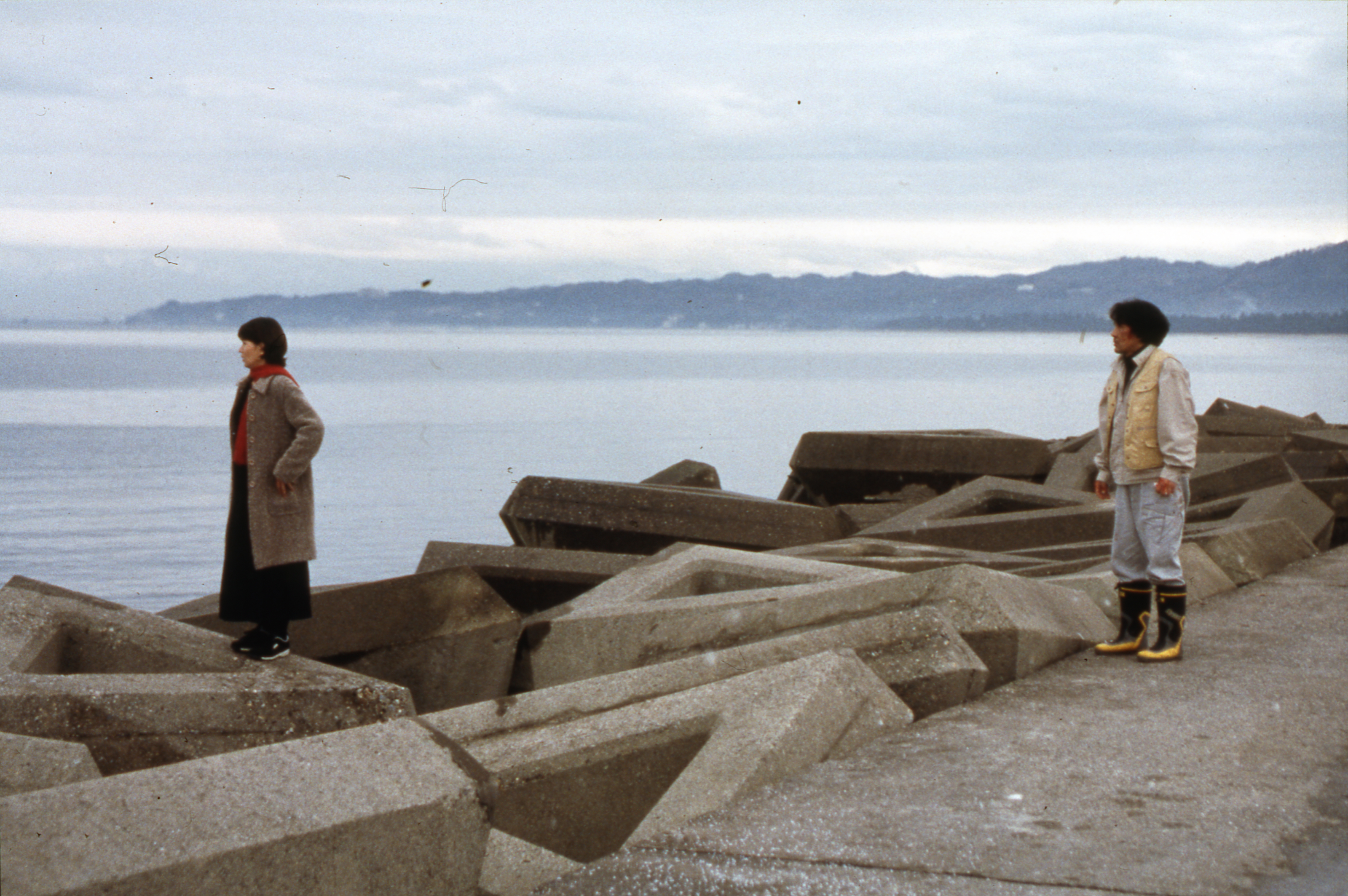 Photo courtesy of Film Movement. © Nikkatsu Corporation, Imamura Production, Vap Inc., Shochiku Broadcasting Co., Ltd.
Photo courtesy of Film Movement. © Nikkatsu Corporation, Imamura Production, Vap Inc., Shochiku Broadcasting Co., Ltd.
Source: Film Movement press release
Official Site: https://www.filmmovement.com/warm-water-under-a-red-bridge
Special Thanks to Michael Krause
 Photo courtesy of Film Movement. © Nikkatsu Corporation, Imamura Production, Vap Inc., Shochiku Broadcasting Co., Ltd.
Photo courtesy of Film Movement. © Nikkatsu Corporation, Imamura Production, Vap Inc., Shochiku Broadcasting Co., Ltd.
A down-and-out Salaryman travels to a seaside town where he meets a woman with unusual sexual powers in WARM WATER UNDER A RED BRIDGE (赤い橋の下のぬるい水, Akai Hashi no Shita no Nurui Mizu, 2001), the final film from revered filmmaker Shohei Imamura.
The Digitally restored, Palme d'Or-nominated classic opens theatrically at Bam Rose Cinemas on March 31; additional markets to follow. Visit the official website for screening updates.
Film Movement Classics / 119 Minutes / Japanese Comedy, Fantasy, Drama / Japanese with English Subtitles / Not Rated
SYNOPSIS
Brimming with magical realism, sensuality, and humor, the final film by revered filmmaker Shohei Imamura is "an enlightening, even liberating, experience" (Roger Ebert, Chicago Sun-Times) that tells the story of Yosuke Sasano, an unemployed salaryman who arrives in a remote fishing village following a rumor of hidden treasure. Instead, he meets Saeko Aizawa, a charming and unusual woman with a unique problem: a well of warm water inside her longing for release. Saeko faces both shame and adoration for her condition, which the local anglers believe feeds the river and its fish. Intrigued and enamored, Yosuke decides to take up a new life as a fisherman. Through their passionate affair, Imamura paints a picture of longing, fantasy, and the search for true happiness in the most unexpected of places that's both "nonchalantly freaky and uncommonly pleasurable" (Michael Atkinson, The Village Voice).
DIRECTOR BIO: SHOHEI IMAMURA (1926-2006)
Though Shohei Imamura’s rare status as a double Palme d’Or recipient alone might mark him as a cinematic giant, these accolades hardly scratch the surface of his work’s significance in the scope of international, let alone Japanese cinema. As an assistant on several of Yasujiro Ozu's family dramas, Imamura learned the rules of conventional filmmaking, then leveraged this knowledge when making his own films to challenge the old guard, leading the oft-overlooked Japanese New Wave movement.
His desire-driven narratives centering the likes of sex workers and pornographers evade constraints imposed by the traditional family unit and strive to represent human nature at its most primitive. One needn’t look further than his first feature STOLEN DESIRE (盗まれた欲情, Nusumareta Yokujō, 1958) to see this career trajectory in action, as Imamura literally juxtaposes kabuki theater to strip tease performances. His final feature, WARM WATER UNDER A RED BRIDGE, beautifully concludes this trajectory, probing Japanese women’s newfound sexual agency in a humorous and fantastical romance.
Indeed, no subject matter is out of reach for Imamura: his films span from critiques of American imperialism to surrealist, emancipatory female dramas to frank portrayals of incest and murder. Having received awards from both the Japan Film Academy and Cannes Film Festival for landmark films like THE BALLAD OF NARAYAMA (楢山節考, Narayama Bushikō, 1983) and THE EEL (うなぎ, Unagi, 1997), Imamura played a key role in the evolution of Japanese cinema during the latter half of twentieth century.
In 1975 Imamura established The Japan Institute of the Moving Image (formerly known as the Yokohama Broadcasting Technical School), to cultivate future filmmakers, further cementing his incredible legacy in world cinema.
 Photo courtesy of Film Movement. © Nikkatsu Corporation, Imamura Production, Vap Inc., Shochiku Broadcasting Co., Ltd.
Photo courtesy of Film Movement. © Nikkatsu Corporation, Imamura Production, Vap Inc., Shochiku Broadcasting Co., Ltd.
 Photo courtesy of Film Movement. © Nikkatsu Corporation, Imamura Production, Vap Inc., Shochiku Broadcasting Co., Ltd.
Photo courtesy of Film Movement. © Nikkatsu Corporation, Imamura Production, Vap Inc., Shochiku Broadcasting Co., Ltd.
 Photo courtesy of Film Movement. © Nikkatsu Corporation, Imamura Production, Vap Inc., Shochiku Broadcasting Co., Ltd.
Photo courtesy of Film Movement. © Nikkatsu Corporation, Imamura Production, Vap Inc., Shochiku Broadcasting Co., Ltd.
 Photo courtesy of Film Movement. © Nikkatsu Corporation, Imamura Production, Vap Inc., Shochiku Broadcasting Co., Ltd.
Photo courtesy of Film Movement. © Nikkatsu Corporation, Imamura Production, Vap Inc., Shochiku Broadcasting Co., Ltd.
 Photo courtesy of Film Movement. © Nikkatsu Corporation, Imamura Production, Vap Inc., Shochiku Broadcasting Co., Ltd.
Photo courtesy of Film Movement. © Nikkatsu Corporation, Imamura Production, Vap Inc., Shochiku Broadcasting Co., Ltd.
About Film Movement
Founded in 2002, Film Movement is a North American distributor of award-winning independent and foreign films based in New York City. It has released more than 250 feature films and shorts culled from prestigious film festivals worldwide. Film Movement’s theatrical releases include American independent films, documentaries, and foreign art house titles. Its catalog includes titles by directors such as Ryusuke Hamaguchi, Lee Isaac Chung, Hirokazu Kore-eda, Maren Ade, Jessica Hausner, Andrei Konchalovsky, Andrzej Wajda, Diane Kurys, Ciro Guerra and Melanie Laurent.
In 2015, Film Movement launched its reissue label Film Movement Classics, featuring new restorations released theatrically as well as on Blu-ray and DVD, including films by such noted directors as Ang Lee, Eric Rohmer, Luchino Visconti, Stanley Kwan, Peter Greenaway, Bille August, Marleen Gorris, Takeshi Kitano, Arturo Ripstein, King Hu, Sergio Corbucci and Ettore Scola. For more information, please visit www.filmmovement.com. Visit www.filmmovementplus.com for more information about Film Movement Plus, Film Movement’s critically lauded streaming subscription service.

